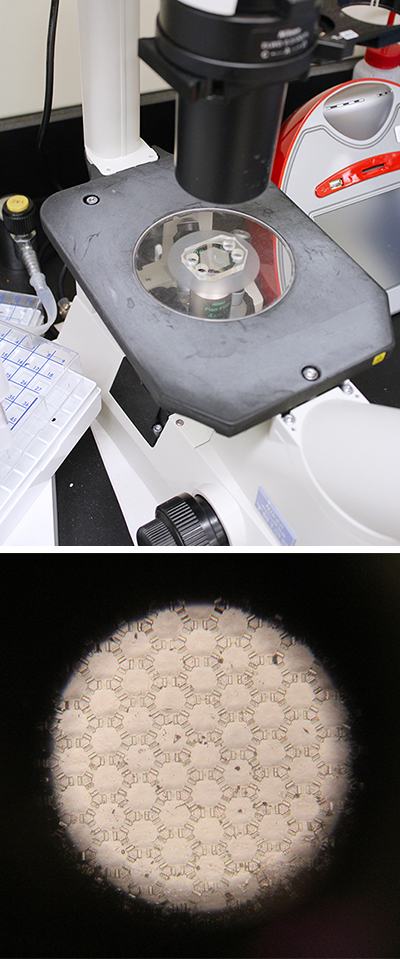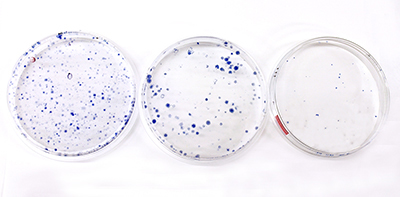 Research Overview
Research Overview
Research in the Haffty laboratory at Rutgers Cancer Institute focuses on translational investigation of radiation therapies in combination with novel drugs targeting breast cancer and other cancers. The research involves molecular and cellular radiation biology from in vitro human cancer cells to in vivo animal models to clinical trials.
Previously, Haffty lab worked on targeting BCL-2 survival family members to enhance radiation's therapeutic effect in breast cancer cells. ABT-737, a small molecule inhibitor of BCL-2, was applied in targeting anti-apoptotic BCL-2 family proteins. Treatment with ABT-737 resulted in elevated MCL-1 levels in breast cancer cell lines. The Haffty group revealed that radiation diminished MCL-1 elevation induced by ABT-737; in addition, radiation down-regulated MCL-1 by promoting its degradation. Although radiation and ABT-737 exert a synergistic effect on breast cancer cell lines, ABT-737/ABT-263 induced thrombocytopenia which has implications for further clinical development. Other promising BCL-2 inhibitors, such as ABT 199 and ONC201, were tested in the Haffty laboratory to reveal agents that are enhanced by radiation and have the potential to deliver targeted therapy in the clinical setting. Currently, Haffty lab is investigating novel genetic and molecular biomarkers in breast cancer models on treatment with radiation therapy. The lab focus is also to investigate the role of radiation therapy in combination with immunotherapies for synergistic anti-tumor effect in breast cancer models-in both preclinical and clinical settings. The lab has an access to clinical breast cancer patient samples undergoing treatment in the “pre-operative boost clinical trial”-to validate the promising findings of our pre-clinical models. Recently, the Haffty lab identified various immune cell biomarkers which modulate the tumor microenvironment (TME) in breast cancer models on treatment with different doses of radiation therapy. Additionally, the lab is investigating the role of latest technological innovations that sensitize breast cancers to radiation therapy and to check if they could increase the therapeutic index either as a monotherapy or in combination. Furthermore, Haffty lab is also involved in understanding the role of radiation therapy with recently FDA approved small molecule inhibitors which increases the genomic instability in cancer cells, for synergistic anti-tumor effects against various cancer types including breast cancer. All this is made possible in part by the ongoing support of the Breast Cancer Research Foundation.


